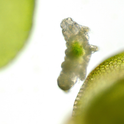When she dies, Ingrid Newkirk wants her skin to be turned into a leather belt and an umbrella stand to be fashioned from one of her feet. In her will, which she has published online, she asks that her flesh be carved up and grilled on a barbeque and one of her eyes delivered to the Home Office—a reminder, she hopes, that Peta is watching.
After all, Newkirk, who founded Peta (People for the Ethical Treatment of Animals) in March 1980, is no stranger to using grand gestures to make a point. She is the outspoken president of the outlandish organisation, known mostly for its dramatic stunts in the name of animal rights.
“This is a table. It’s an it,” she tells me, pointing at the coffee table in her King’s Cross office. Newkirk was born in England but now lives in the United States. When we meet, she is visiting from her home in Washington, DC. “Animals have gender. And they have sexual interest, which we try to curb… But they’re very much individuals with different personalities and different thoughts and feelings and even psychoses.”
The 75-year-old, who grew up in Britain and India, was studying to be a stockbroker in Maryland when she took a job in an animal shelter. The cruelty she witnessed there—including dogs being kicked and abandoned kittens being killed—convinced her of the need for an organisation dedicated to animal welfare. “I’ve never looked back,” she says.
In 1992, Newkirk led 40 animal rights activists onto a field in Pennsylvania where a pigeon shoot was about to take place. “These poor pigeons were considered pests, when I think humans are probably the pest-iest animals of all.” While people were shooting, the activists ran onto the field, “hoping they would stop”, she recalls. “Luckily, they did. And we opened the boxes, and the pigeons flew away.”
She spent 15 days in prison for the protest. “They had to give us vegan meals in jail, which confused them greatly in Pennsylvania. They said, ‘oh, you don’t eat grapes, do you, because that’s the blood of Christ.’ That was wonderful.”
She was arrested again in 2006, after she and fellow campaigners had occupied Jean-Paul Gaultier’s boutique in Paris, smearing red paint all over the window and themselves to protest his use of fur. Her experience of French jail was much worse than in the US. “It just reeked of urine. It was freezing cold. We were overcrowded... But as we always say, it’s nothing compared to what the animals go through.” Twelve years after Peta’s protest, Jean-Paul Gaultier finally ended the practice.
Banning animal testing—something Labour’s manifesto pledged to phase out—is her current main goal. She is furious about antidepressant trials where scientists place rodents in a water tank and observe how long they keep swimming. Those given an antidepressant tend to give up more slowly.
Newkirk thinks this test is ridiculous. “It’s not going to show you anything in a rat. A rat is not going through a divorce and the loss of a job and needs an antidepressant,” she scoffs.
That tap on the shoulder is Peta’s job. “Getting people’s attention is a must for any social movement,” she says. Newkirk has posed naked while strung up by a meat hook between pig carcasses, and outside Fortnum & Mason with a bloody feeding tube in her mouth to protest foie gras. Her favourite campaign was Peta’s iconic “I’d rather go naked than wear fur”.
“The press wants something sexy or oppressive, confrontational, interesting, amusing,” she says. “We’re stuck with it.”
Is there a risk that an annoying stunt could turn people off the cause? Newkirk certainly doesn’t think so: “Nobody’s going to get an extra car because of Just Stop Oil. Nobody’s going to buy an extra steak because we say, ‘please go vegan,’ while dressed as carrots.”













